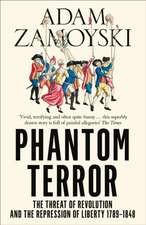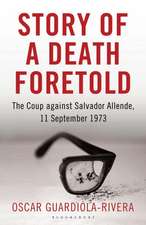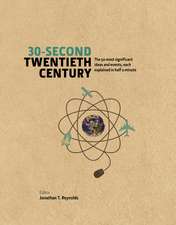British Human Rights Organizations and Soviet Dissent, 1965-1985
Autor Mark Hursten Limba Engleză Paperback – 29 noi 2017
| Toate formatele și edițiile | Preț | Express |
|---|---|---|
| Paperback (1) | 237.84 lei 6-8 săpt. | |
| Bloomsbury Publishing – 29 noi 2017 | 237.84 lei 6-8 săpt. | |
| Hardback (1) | 774.20 lei 6-8 săpt. | |
| Bloomsbury Publishing – 4 mai 2016 | 774.20 lei 6-8 săpt. |
Preț: 237.84 lei
Nou
Puncte Express: 357
Preț estimativ în valută:
45.51€ • 49.59$ • 38.35£
45.51€ • 49.59$ • 38.35£
Carte tipărită la comandă
Livrare economică 23 aprilie-07 mai
Preluare comenzi: 021 569.72.76
Specificații
ISBN-13: 9781350054417
ISBN-10: 1350054410
Pagini: 264
Dimensiuni: 233 x 156 x 18 mm
Greutate: 0.37 kg
Ediția:NIPPOD
Editura: Bloomsbury Publishing
Colecția Bloomsbury Academic
Locul publicării:London, United Kingdom
ISBN-10: 1350054410
Pagini: 264
Dimensiuni: 233 x 156 x 18 mm
Greutate: 0.37 kg
Ediția:NIPPOD
Editura: Bloomsbury Publishing
Colecția Bloomsbury Academic
Locul publicării:London, United Kingdom
Caracteristici
Based on analysis of vast amounts of archival material and interviews with the key figures
Notă biografică
Mark Hurst is Lecturer in History at Lancaster University, UK.
Cuprins
List of IllustrationsList of AbbreviationsAcknowledgementsIntroduction 1. From Belov to Bukovsky - The Growing Awareness of Psychiatric Abuse2. Shifting Psychiatric Concerns, the Special Committee and the Soviet Withdrawal3. Prisoner's Banquets, Ghosts, and the Ballet - The Women's Campaign for Soviet Jewry4. From Toothache to Keston, via Moscow - Michael Bourdeaux and the Centre for the Study of Religion and Communism5. Attempting Impartiality - Amnesty International and the Soviet UnionConclusion: The Rush to Expertise Bibliography Index
Recenzii
Hurst succeeds . in providing valuable insights on the dedicated-and often deeply personal-engagement by the British actors. In addition, this work certainly contributes to the research on human rights NGOs and social movements in a British context and would indeed be useful for informing comparative work in other national settings.
It is within Hurst's very cogent narrative that the reader will discover excellent opportunities to draw distinctions between the work of international human rights organizations working against authoritarian states, both historical and contemporary.
The copious notes and bibliography serve as a testimony to the painstaking work that makes this volume not merely an academic reference, but an engrossing read in its own right, bringing life to the names of both the Western human rights activists involved and the prisoners and persecuted whom they defended. It is essential reading for historians, politicians and anyone with an interest in Russia past and present.
Human rights activists may not have ended the Cold War by themselves, but thanks to works like Hurst's, it is increasingly difficult to imagine the Cold War ending without them.
It is within Hurst's very cogent narrative that the reader will discover excellent opportunities to draw distinctions between the work of international human rights organizations working against authoritarian states, both historical and contemporary.
The copious notes and bibliography serve as a testimony to the painstaking work that makes this volume not merely an academic reference, but an engrossing read in its own right, bringing life to the names of both the Western human rights activists involved and the prisoners and persecuted whom they defended. It is essential reading for historians, politicians and anyone with an interest in Russia past and present.
Human rights activists may not have ended the Cold War by themselves, but thanks to works like Hurst's, it is increasingly difficult to imagine the Cold War ending without them.












